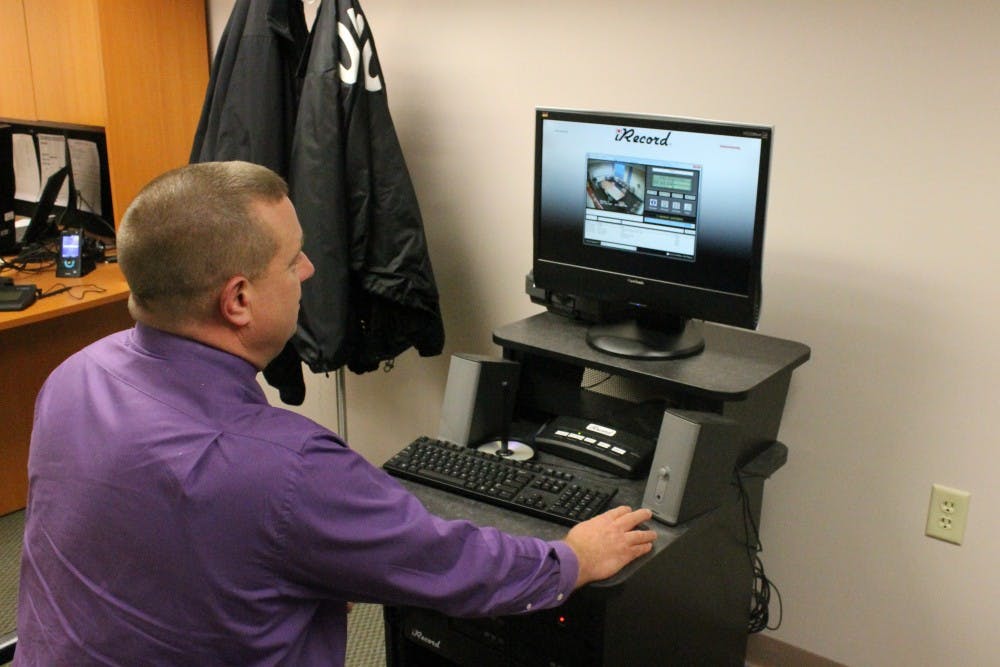Local police upgrade video, audio equipment in interrogation rooms
The Mount Pleasant Police Department was ahead of the game when the state of Michigan began requiring interrogations to be recorded in March.
In search of an upgrade from their outdated audio and video equipment, MPPD bought a $30,000 system from iRecord on Dec. 27, 2013. This new system allows higher quality footage to be recorded during interviews.
MPPD Detective David Sabuda said the new system is set up to record in two interview rooms and the conference room, and is activated by a toggle switch next to each door.
“The old system would sometimes look like an old Godzilla movie," Sabuda said. "It’s a lot simpler now that it’s all computerized, even when we’re doing things like recording. Before, if you wanted to look up a taped interview, you would have to get into the system and try to find it by rewinding. Now, after you use it (for an interview), you just have to type in a complaint number or a name.”
Sabuda said the iRecord system makes his job easier because the interview process is more organized and goes faster. He said it also looks and sounds better because the subject would actually be talking in sync with the way his mouth moves.
Even though the old computer system still worked, it was old and hard to use, Sabuda said. Before each interrogation, an officer would sign in to the interrogation room on a sheet of paper. Afterwards, the officer compared the time he signed in to the time the interview took place.
MPPD Detective Don Sytsema said he prefers the new system more because it’s easy to navigate, like a search engine.
“You can search by day, by room, by case numbers. You can search anything on a certain complaint number. There’s a whole list of things you could use to search, like a last name,” Sytsema said. “It’s just a lot easier than the old system.”
The iRecord system also allows any recording to be burned on a CD, which makes it easier to transport to places like the courthouse. That is important for displaying clear evidence in a courtroom, Sabuda said.
“There’s an expectation within the court system that everything we’re going to do is going to be video," Sabuda said. "It helps us as investigators to have our interviews easily accessible."
The Michigan Commission on Law Enforcement Standards manages law enforcement regulations. According to section 8 of Act 175 of the Code of Criminal Procedure, any interrogation related to a major felony must be recorded.
“A law enforcement official interrogation of an individual in custodial detention regarding the individual’s involvement in the commission of a major felony shall make a time-stamped, audiovisual recording of the entire investigation,” Act 175 reads. “…A major felony recording shall be produced using equipment and procedures that are designed to prevent alteration of the recording’s audio or visual record.”
Sabuda said the MPPD was already looking for an upgrade for their system. When the new law came out at around the same time, it was a coincidence.
The new law also pertains to Central Michigan University Police, and, like the MPPD, CMUPD was prepared for it, according to CMU Police Chief Bill Yeagley.
“The system we were using was almost 100 percent compliant," Yeagley said. "We had to add a couple of components to get us to 100 percent, so it wasn’t that big of a change for us. We’re in compliance with the law.”




